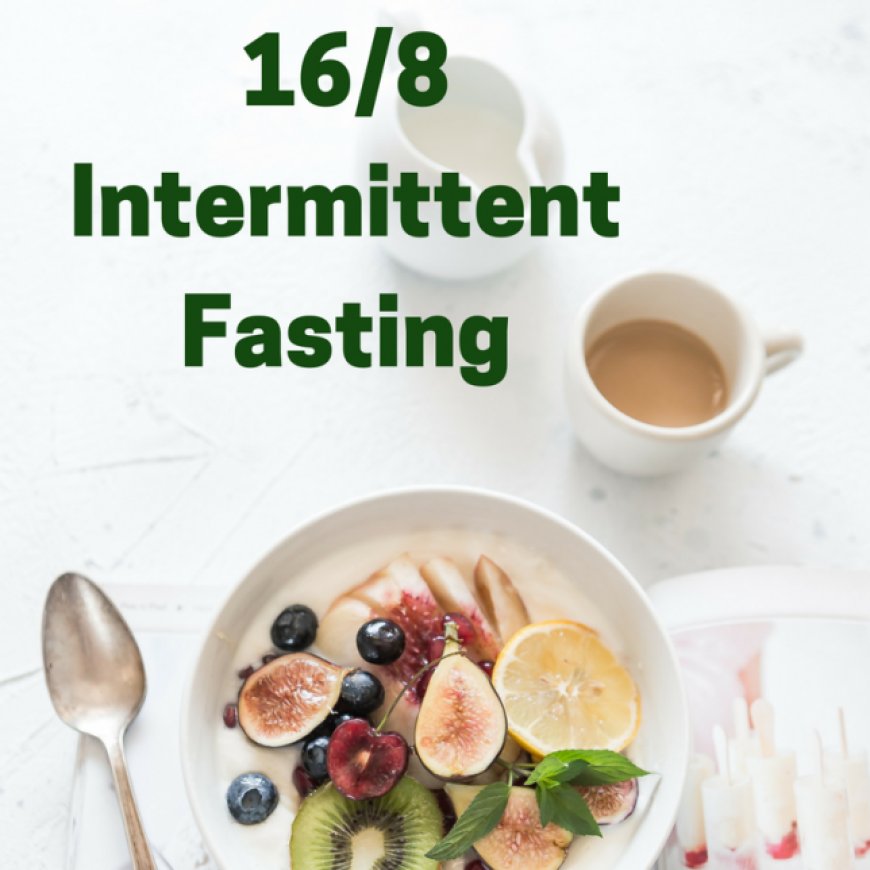Intermittent Fasting - Methods , Benefits and Side effects

Intermittent Fasting
Intermittent fasting is a dietary approach that involves alternating periods of fasting and eating. Instead of focusing on what to eat, it focuses on when to eat. Intermittent fasting has gained popularity for several potential health benefits. Some studies suggest that it may aid in weight loss by reducing calorie intake and boosting metabolism. It may also improve insulin sensitivity, promote cellular repair processes, and support brain health.
However, it's important to note that intermittent fasting is not suitable for everyone. Individuals with certain medical conditions, such as diabetes, may need to consult with their healthcare provider before trying intermittent fasting. It's also important to maintain a balanced and nutritious diet during your eating periods to ensure you're getting adequate nutrients.
Different methods of Intermittent Fasting
Here are six different methods or variations of intermittent fasting:
-
16/8 Method: This is one of the most popular and straightforward methods. It involves fasting for 16 hours and restricting your eating window to 8 hours each day. For example, you might choose to eat only between 12 pm and 8 pm, and fast from 8 pm to 12 pm the next day.
-
5:2 Diet: With this method, you eat normally for five days of the week and restrict your calorie intake to around 500-600 calories for the other two non-consecutive days. On fasting days, it's important to choose nutrient-dense foods to meet your body's nutritional needs within the restricted calorie range.
-
Eat-Stop-Eat: This approach involves fasting for a full 24 hours once or twice a week. For example, you might finish dinner at 7 pm one day and then not eat again until 7 pm the following day. During the fasting period, you can consume calorie-free beverages like water, herbal tea, or black coffee.
-
Alternate-Day Fasting: As the name suggests, this method involves fasting every other day. On fasting days, you can choose to either consume no calories or limit your intake to a very low amount (e.g., 500 calories). On non-fasting days, you eat normally.
-
Warrior Diet: This method involves eating very little during the day and having one large meal at night. Throughout the day, you can consume small amounts of fruits, vegetables, and protein-rich foods, and then have a larger meal within a 4-hour eating window at night.
-
Spontaneous Meal Skipping: This approach is more flexible and doesn't adhere to a strict fasting schedule. It involves occasionally skipping meals when you don't feel hungry or when it's convenient for your schedule. For example, if you're not hungry in the morning, you can choose to skip breakfast and have your first meal later in the day.
Tips for maintaining intermittent fasting
Maintaining intermittent fasting can be challenging at first, but here are some tips to help you stick to your fasting schedule:
-
Start gradually: If you're new to intermittent fasting, it's best to start gradually. Begin with a shorter fasting window, such as 12 hours, and gradually increase it over time. This allows your body to adjust and makes it easier to stick to the fasting routine.
-
Stay hydrated: Drink plenty of water throughout the day, especially during your fasting periods. Staying hydrated can help reduce hunger pangs and keep you feeling more satisfied.
-
Consume filling and nutritious meals: When it's time to eat, focus on consuming balanced and nutrient-dense meals. Include plenty of vegetables, lean proteins, healthy fats, and whole grains to help keep you satisfied during the fasting period.
-
Use calorie-free beverages: During your fasting hours, you can consume calorie-free beverages like water, herbal tea, black coffee, or sparkling water to help curb hunger and stay hydrated.
-
Stay busy: Distract yourself with activities to keep your mind off food during fasting periods. Engage in work, hobbies, exercise, or other tasks to occupy your time and reduce the temptation to eat.
-
Plan your meals and snacks: Planning your meals and snacks in advance can help you stay on track with your eating window. Prepare your meals ahead of time, have healthy snacks available, and stick to your predetermined eating schedule.
-
Listen to your body: Pay attention to your body's hunger and fullness cues. If you're truly hungry during your fasting period, it's okay to adjust your eating schedule accordingly. Intermittent fasting is meant to be flexible, so don't force yourself to fast if it doesn't feel right.
-
Be consistent: Consistency is key when it comes to intermittent fasting. Try to stick to your chosen fasting schedule as much as possible, even on weekends or during special occasions. Consistency will help your body adapt and make the fasting routine easier to maintain.
-
Seek support: Consider joining online communities, forums, or finding an accountability partner who is also practicing intermittent fasting. Sharing experiences, tips, and challenges with others can provide support and motivation to stay on track.
Benefits of Intermittent Fasting
Intermittent fasting has been associated with several potential health benefits. It's important to note that while there is growing scientific research supporting these benefits, more studies are needed to fully understand the long-term effects. Here are some of the reported benefits of intermittent fasting:
-
Weight loss: Intermittent fasting can help promote weight loss by creating a calorie deficit. By limiting the eating window or reducing overall calorie intake, intermittent fasting can lead to weight loss and a reduction in body fat. It may also help improve body composition by preserving muscle mass.
-
Improved insulin sensitivity: Intermittent fasting has shown to enhance insulin sensitivity, which is crucial for maintaining stable blood sugar levels. This can be beneficial for individuals with prediabetes, type 2 diabetes, or those at risk of developing these conditions.
-
Cellular repair and autophagy: During fasting periods, cellular repair processes such as autophagy (the process of recycling and removing damaged cells) may be upregulated. This can help remove waste material, repair cellular damage, and potentially improve longevity.
-
Reduced inflammation: Some studies suggest that intermittent fasting may reduce inflammation levels in the body. Chronic inflammation is associated with various health conditions, including obesity, cardiovascular disease, and certain cancers.
-
Brain health and cognitive function: Intermittent fasting may have positive effects on brain health. Animal studies have shown that intermittent fasting can enhance brain function, promote neuroplasticity, and potentially protect against neurodegenerative diseases like Alzheimer's and Parkinson's.
-
Cardiovascular health: Intermittent fasting has been linked to improved heart health markers such as reduced blood pressure, improved lipid profile, and decreased markers of oxidative stress. These factors contribute to a lower risk of cardiovascular diseases.
-
Longevity: Some animal studies have suggested that intermittent fasting may extend lifespan and increase longevity. However, more research is needed to determine if similar effects occur in humans.
It's important to remember that individual results may vary, and intermittent fasting is not a one-size-fits-all approach. It's advisable to consult with a healthcare professional or registered dietitian before starting any fasting regimen, especially if you have underlying health conditions or concerns. They can provide personalized guidance based on your specific needs and goals.
Side effects
While intermittent fasting can have potential health benefits, it may also have some side effects or considerations to be aware of. Here are a few possible side effects:
-
Hunger and discomfort: During the fasting periods, it's common to experience hunger, especially in the beginning stages of intermittent fasting. Some individuals may find it challenging to adjust to the fasting schedule, which can lead to discomfort or intense hunger pangs.
-
Fatigue and low energy: Restricting calorie intake or fasting for extended periods may result in temporary fatigue or low energy levels. Your body needs fuel from food to provide energy, so it's essential to ensure you're consuming enough calories and nutrients during your eating windows.
-
Nutritional deficiencies: If you're not careful about the quality and quantity of food consumed during your eating periods, there is a risk of not meeting your nutritional needs. It's important to prioritize nutrient-dense foods and maintain a balanced diet to prevent deficiencies in essential vitamins, minerals, and other nutrients.
-
Disrupted sleep: Some individuals may experience disrupted sleep patterns when starting intermittent fasting. This could be due to hunger or changes in eating routines. It's important to pay attention to your body and adjust your eating schedule if necessary to promote restful sleep.
-
Changes in mood or irritability: Fasting periods or hunger can affect some individuals' mood, leading to irritability or mood swings. It's essential to be mindful of your emotional well-being and consider adjusting your fasting schedule or seeking support if needed.
-
Adverse effects for certain medical conditions: Intermittent fasting may not be suitable for everyone, especially individuals with certain medical conditions such as diabetes, eating disorders, or a history of disordered eating. If you have any underlying health conditions, it's crucial to consult with a healthcare professional before starting intermittent fasting.
What's Your Reaction?






















































